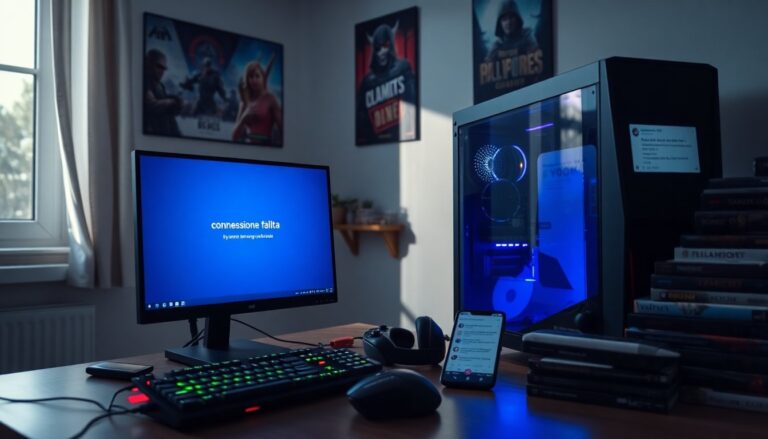Argomenti trattati
Several leading online gaming services have experienced significant disruptions due to a DDoS (Distributed Denial of Service) attack. This incident has particularly impacted Steam, a platform known for its vast game library. Users report difficulties logging in and interruptions during gameplay, raising concerns about the reliability of these services.
According to official sources, the attack is associated with a notorious botnet named Aisuru. This network of compromised computers has targeted various platforms, including Steam, Amazon Web Services (AWS), and Riot Games, the developer of the widely played title League of Legends. The ongoing situation underscores the vulnerabilities that online gaming services face.
The facts
Reports confirm that the attack began in the early hours and has affected multiple gaming services. Users have reported widespread accessibility issues, impacting their ability to play games and connect to platforms.
The consequences
The disruption has raised questions about the security measures in place to protect these platforms from such attacks. Industry experts are urging companies to enhance their defenses against increasingly sophisticated threats.
Here are the facts: Players reported sporadic access to Steam around 7 PM. Some users experienced complete outages, affecting their ability to engage with games. The platform’s user traffic management has faced significant challenges, leading to frustration among gamers. Downdetector, which monitors outages based on user feedback, recorded a surge in reports for Steam and Riot Games services.
The facts
Riot Games confirmed disruptions affecting their platforms across multiple operating systems, including Windows, macOS, iOS, and Android. The company released a statement acknowledging the difficulties players faced when disconnected mid-game. As a precaution, Riot has temporarily disabled the ranked mode while they investigate the extent of the issues.
The consequences
The outages have led to widespread dissatisfaction among gamers, impacting their gaming experience. Riot Games’ decision to disable ranked mode aims to prevent further frustration and ensure a fair environment once the issues are resolved. Players are left awaiting updates on the situation as the companies work to restore normal functionality.
Understanding DDoS attacks and their implications
A DDoS attack aims to overwhelm a service’s infrastructure by inundating it with excessive traffic. This tactic renders the service unable to respond to legitimate user requests. The recent attack orchestrated by the Aisuru botnet illustrates how a network of compromised machines can disrupt digital services.
The scale of the current attack is still under evaluation. Initial data from Steam suggests that the surge in accessibility issues may be temporary. Nevertheless, this incident prompts critical questions regarding the security measures employed by online gaming platforms and their capacity to defend against such malicious assaults.
Community impact and the road ahead
The facts
Gamers are experiencing disruptions during the ongoing Steam Autumn Sale, which features significant discounts on numerous titles. Many players anticipated taking advantage of these offers but are encountering connectivity issues. The gaming community has voiced its frustration on social media, underscoring the necessity for reliable gaming services.
The consequences
The expansion of the gaming industry highlights the urgent need for robust security protocols. Developers and service providers must focus on building resilient systems that safeguard against such attacks. This ensures players maintain uninterrupted access to their favorite games.
The DDoS attack has highlighted significant vulnerabilities in online gaming platforms. While the immediate effects may be short-lived, the broader challenge of securing these platforms persists. Both players and developers must stay alert as they confront the evolving landscape of cyber threats in digital gaming.

